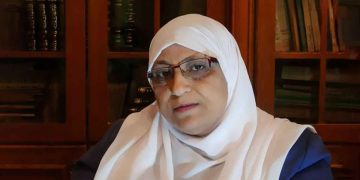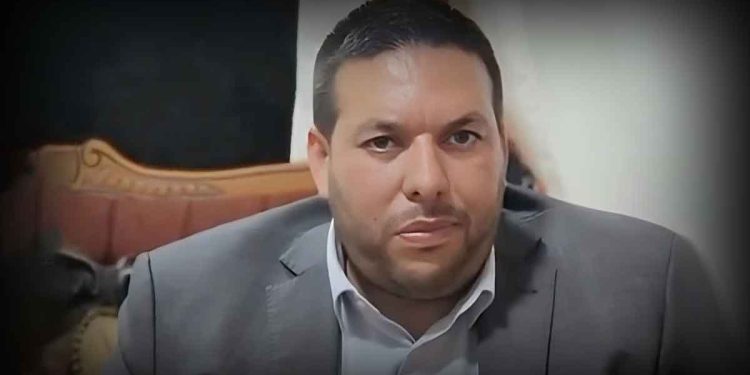Arab Organisation for Human Rights in the UK (AOHR UK) has condemned the arrest of Palestinian lawyer Muhannad Karajah, director of the group Lawyers for Justice, by the Palestinian Authority’s Security Services on fabricated charges. AOHR UK warned that the move marks a serious escalation in the ongoing campaign to restrict human rights defenders and lawyers engaged in public freedoms cases, reflecting a deepening deterioration in judicial independence and the rule of law across the Palestinian territories.
AOHR UK explained that the Public Prosecution issued an order on Wednesday, 29 October 2025, to detain Karajah for 48 hours following his summons for questioning. He was charged with “inciting sectarian strife” and “spreading false information intended to cause panic”, under laws dating back to the 1950s and 1960s, charges that are routinely used as instruments to punish critics and opponents of the Authority.
AOHR UK considers the accusations against Karajahto be based on deliberately fabricated digital materials and circulated as part of a coordinated smear and incitement campaign targeting him personally and the rights group he leads. Anticipating his arrest, Karajah had recorded a video detailing his detention at the Jordan Bridge upon returning from travel, where he was interrogated and instructed to meet with the intelligence service before being released, yet remained under threat of rearrest. He requested that the video be published in the event of his detention. After his arrest, the video was released, in which he stated that he had received death threats, as had his family and staff members, in an apparent effort to intimidate him. He stressed that he had filed formal complaints with the Public Prosecution concerning these threats, but they had been entirely ignored. He also announced that he would begin a hunger strike upon arrest, in protest against the fabricated charges and the targeting of his professional and human rights work.
AOHR UK emphasised that Karajah’s arrest is not an isolated incident, but part of an ongoing pattern of persecution and arbitrary detention targeting activists, lawyers, and human rights defenders in the West Bank, amid a climate of impunity and systematic silencing of dissent. This, it said, reflects a broader policy aimed at undermining civil space and subjugating independent rights institutions.
It further noted that the arrests and repression carried out by the Palestinian Authority’s security apparatus form part of the security coordination framework and a policy of rearrest, whereby those detained by the Israeli occupation are subsequently detained or interrogated by the Authority’s security forces, and vice versa. AOHR UK added that this cooperation continues amid an escalating campaign of annihilation in the West Bank, where Israeli forces and settler militias are seizing land, expanding settlements, attacking and burning civilian property, demolishing homes, shooting and killing Palestinians, bombing houses, and conducting widespread arbitrary arrests.
AOHR UK called on the Palestinian Authority to immediately and unconditionally release lawyer Muhannad Karajah, drop all charges against him, and end all forms of intimidation and harassment targeting those working in the legal and human rights fields.
It also urged the Palestinian Bar Association to assume its legal and moral responsibility in defending its members, to take a clear stance against this assault on the freedom of legal practice, and to act to ensure that such violations are not repeated.
Furthermore, AOHR UK appealed to the UN Special Rapporteurs on freedom of expression and on human rights defenders, as well as to the European Union and human rights missions of supporting states in Palestine, to intervene urgently to follow up on the case, ensure Karajah’s release, and protect human rights defenders from the systematic targeting that threatens the very existence of civil society in the Palestinian territories.
AOHR UK warned that the Palestinian Authority’s continued use of the judicial and security systems as tools of political repression will only deepen the public’s loss of trust in the judiciary, worsen internal divisions, and further tarnish the Authority’s image before the international community. It urged the Authority to uphold its international obligations and to guarantee freedom of expression and human rights work without restriction or reprisal.






























